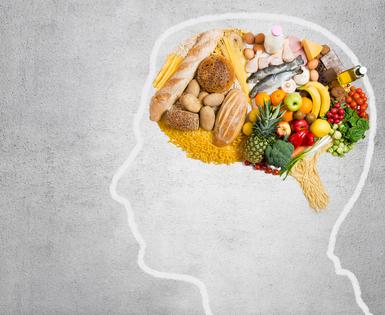Environmental Nutrition: The psychology of food choices
Published in Health & Fitness
A salad or a cheeseburger? A fruit bowl or chocolate cake? A milkshake or a diet soda? There are many factors that determine which food you would choose, and the decision-making process is far more complicated than many of us even realize.
Some food choices are deliberate, while others are unconsciously made. Our food choices are driven by a whole host of factors.
Some of these factors, such as genetics, location, economic status, or health status are out of our control. Some research has even suggested that your personality affects which foods you choose. Others, such as habits you’ve developed over time, where you choose to shop or eat, who you eat with, even how food is displayed can ultimately affect your food choices.
These decision-making factors have been categorized, if not quantified, in a number of different ways. While surveys show that the main driver of our food choices are taste, convenience, and price, there are plenty of factors that come into play.
Genetics is a factor in shunning some foods. These differences in taste perception and sensitivity are sometimes explained by genetics. For example, it’s a genetic trait that determines if coriander tastes citrusy and herbal or soapy and unpleasant. However, the extent to which genes influence taste preferences isn’t known.
How food is displayed can affect whether you choose an indulgent or a more healthful food, according to researcher Scott Huettel, professor of psychology and neuroscience at Duke University. He says that your food choices actually can depend on what other options are available. “Our work shows how contextual factors (like the surrounding foods) can influence food choice,”he says.
His research showed that when an unhealthy food is displayed next to a healthier food, the unhealthy food tends to win out. However, if more unhealthy foods are displayed next to a healthy food, the healthy food tends to be included in the choice. “One paradoxical approach for promoting healthy eating might be to pair disciplined foods with small indulgent options so that the overall set of foods seems to support both our taste and health goals,” says Huettel
Lifestyle — such as a move, a job change, or a shift change — is an important factor. Any one of these changes can alter your state of mind and metabolism and have a direct effect on your food choices. That often means reaching for comfort foods.
Seasons affect food choices. Cold weather can trigger the desire for warm foods—soups, stews, chilis, hot tea. Warm weather can trigger the desire for cold foods—ice cream, soft drinks, fresh fruit. In addition, says Grace Derocha RDN, CDCES, MBA, national spokesperson for the Academy of Nutrition and Dietetics, “If someone gardens to grow some of their own food, the season matters, or if they rely on local farmers and farmers markets for reasonably priced fruits and vegetables.”
Time of day can have an impact. “Depending on one’s schedule, the time of day can be very impactful to food choices,” says Derocha. She adds that based on the time of day, someone may have preconceived notions about the foods they are and are not “allowed” to have.
Personality is related to food choices, according to some research. A study done in 2015 found that personalities that are more open to new experiences were more likely to choose more fruits and vegetables. More conscientious personalities consumed more fruits, less meat, and fewer sweet and savory foods. Derocha says she has been counseling people for more than 20 years and has observed that the personality of someone who is very focused and driven to make dietary changes, makes very different food choices compared to someone who is not able to commit to making healthy lifestyle changes.
Mood clearly affects food choices. Aside from weather affecting your mood, when you’re unhappy or under stress, research shows you’re more likely to choose sweet, fatty foods that are low in protein.
Food packaging can either draw you in or make you turn away. Product packaging is designed specifically to catch your eye and make it more likely for you to toss it into your cart. Label promises of “low-fat” or “sugar-free” can be an invitation to not only buy, but to indulge. Interestingly, research found that the word “healthy” on a label seems to turn people away.
A more subtle message, like a heart-healthy symbol, has the opposite effect.
The company you keep can have a powerful effect on the foods you choose, whether it’s from the supermarket shelf, the menu at a restaurant, or the menu board at a fast-food drive-thru. You can’t, of course, stop keeping company with your immediate family, but being out with friends or co-workers can affect your choices.
Psychological drivers of any behavior are complicated, but never more than with food choices. Derocha summed it up best, “The short answer to all of these factors that affect food choices is, ‘it depends.’”
(Reprinted with permission from Environmental Nutrition, a monthly publication of Belvoir Media Group, LLC. 800-829-5384. www.EnvironmentalNutrition.com.)
©2023 Belvoir Media Group. Distributed by Tribune Content Agency, LLC.










Comments